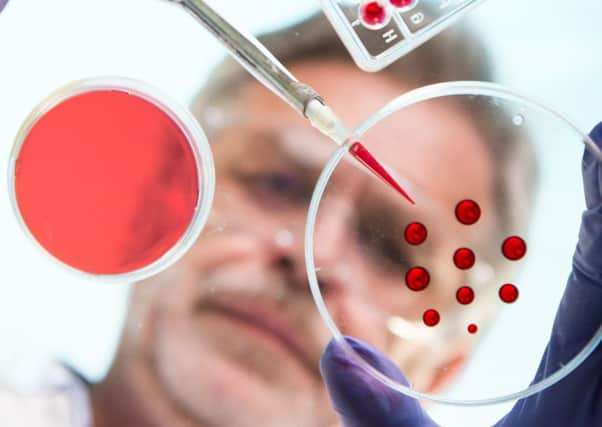Scots scientists make leaps in mad cow disease research


The team have devised a method of studying the abnormal proteins responsible for the disease - called prions - in specialised brain cells grown from stem cells.
Creutzfeldt-Jakob disease (CJD) is a human disease similar to Bovine Spongiform Encephalopathy (BSE) in cows and Chronic Wasting Disease in deer.
Advertisement
Hide AdAdvertisement
Hide AdThe most common form of prion disease in people is sporadic CJD, which occurs spontaneously in the population. Around one in a million people in the UK are affected each year.
A different form of the disease - known as variant CJD - can be acquired by consuming contaminated meat from animals with prion disease, this is the origin of the human form of so-called mad cow disease.
The disease has claimed 229 lives since it was first identified 20 years ago - of which 177 were from the UK - and it remains very rare, the university said.
However, it has been estimated that as many as one in 2,000 people in the UK could be carrying infectious prions without showing any symptoms.
Dr James Alibhai, of the National CJD Research & Surveillance Unit at the University of Edinburgh, said: “Creutzfeldt-Jakob disease was first reported almost 100 years ago but remains a universally fatal disease.
“We still have little understanding of what triggers the condition and how it is spread.
“Our study reports the first physiologically relevant model for studying human prion diseases in the lab. We hope it will lead to discovery of the key molecular and pathogenic events of prion disease, which could reveal new opportunities for treatments and facilitate drug screening.”
The research also demonstrates the potential of human stem-cell derived astrocytes to notably reduce, and in many instances replace, animal studies of human prion disease.
Advertisement
Hide AdAdvertisement
Hide AdThe team says this could make a significant contribution to lowering the number of animals used in research.
Prion diseases cause brain damage that worsens rapidly over time and are invariably fatal.
Scottish engineer Grant Goodwin from Hamilton, became one of the first people in the world to be diagnosed with vCJD strain in September 2008. He died four months later aged 30.